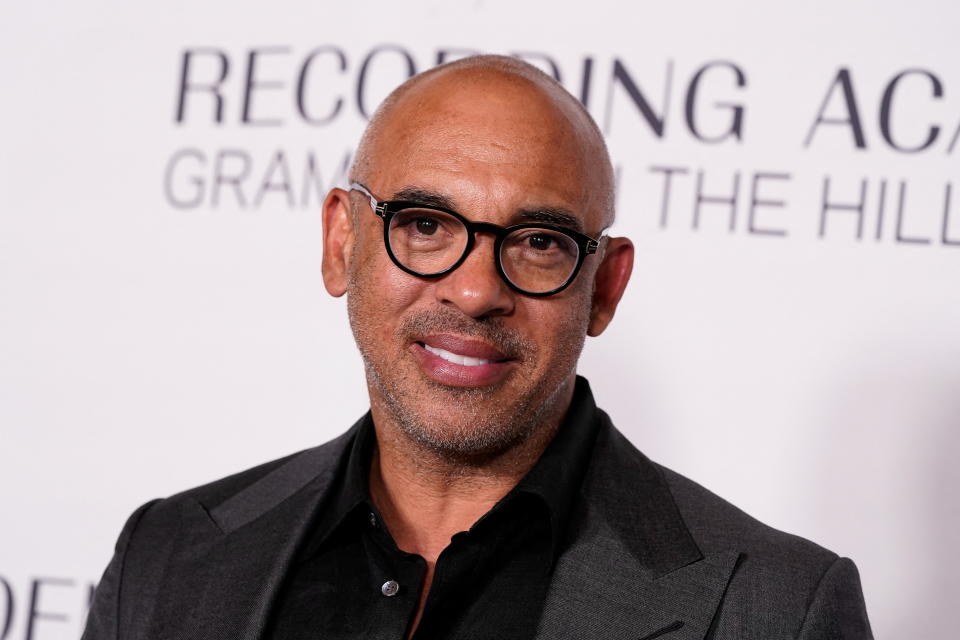The music industry is celebrating its stars Sunday night at the Grammy awards. Behind the scenes it is grappling with perhaps its biggest challenge: the perils and promise of artificial intelligence.
Over the past few years, AI has been used to recreate covers of songs that imitate famous artists’ voices without their consent or knowledge in recreations that sound eerily realistic. The songs can then end up flooding onto streaming services and social media, misleading fans and posing a threat to the artists’ work.
The man in charge of the organization that hosts the Grammys said the music industry is an early adopter of the technology and the opportunities it offers. But it also has to make sure there are rules in place.
“The productivity that comes along with using this technology, creating things we haven’t heard or thought of before and extending the reach of an artist with their voice, is possible,” Harvey Mason Jr., chief executive of the Recording Academy, told Yahoo Finance in an interview. “[But,] regulations, legislation needs to happen to make sure human creators are protected.”

The key questions, Mason said, center on how AI is creating its new generative output and how the industry can identify whether an artist’s voice or music was misused.
One recent positive development hailed by some in the industry was a new Beatles song produced by Paul McCartney and Ringo Starr that used AI tools to pull out John Lennon’s voice from an old demo tape.
“Artists have to be able to consent to a license (for) their voice or for their music to be used by AI, both on the learning side and the generative side,” says Mason. “Then at that point, there will be opportunity to potentially monetize new works if artists, publishing companies, or labels want to. But there needs to be an agreement in place.”

There are some efforts underway in Washington to address these concerns. A bipartisan group of US House lawmakers proposed a new bill earlier this month called the No Artificial Intelligence Fake Replicas and Unauthorized Duplications Act that aims to establish a framework for protecting one’s voice and likeness on a federal level.
Some states are also putting forth legislation to protect artists and the industry.
Tennessee Governor Bill Lee has announced a new state bill — called the Ensuring Likeness Voice and Image Security (ELVIS) Act — this month to protect the state’s artists and songwriters from AI deepfakes, updating an existing law to specifically address the challenges posed by new generative AI tools.
“The fear of what is it learning on and how is it going to be misused or how could it be used to represent somebody that does not agree or consent to the use is something that we’re really concerned about,” says Mason.
Click here for in-depth analysis of the latest stock market news and events moving stock prices.
Read the latest financial and business news from Yahoo Finance







